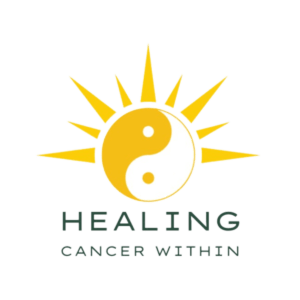The term “self-healing” in the context of cancer is often used in alternative and complementary medicine, and it’s important to clarify that while certain practices may contribute to overall well-being, they are not a substitute for evidence-based medical treatments. Cancer is a complex disease with multifactorial causes, and conventional medical interventions, such as surgery, chemotherapy, and radiation therapy, remain the primary methods for addressing it. However, a holistic approach to health, including self-care practices, can be valuable. Here’s a breakdown of aspects often associated with the self-healing process:
- Mind-Body Connection:
- The mind-body connection recognizes the interrelation between mental, emotional, and physical well-being. Practices like meditation, mindfulness, and visualization aim to reduce stress and promote a positive mental state, potentially supporting overall health.
- Positive Mindset and Belief Systems:
- A positive mindset and belief in one’s ability to heal can influence the healing process. This is not about denying the reality of cancer but fostering a hopeful outlook that may positively impact the individual’s emotional well-being and motivation to adhere to treatment plans.
- Stress Reduction Techniques:
- Chronic stress has been linked to negative health outcomes, including potential impacts on the immune system. Engaging in stress reduction techniques such as deep breathing, yoga, or progressive muscle relaxation may contribute to overall well-being.
- Nutrition and Lifestyle Choices:
- Adopting a healthy lifestyle, including a balanced diet, regular exercise, and sufficient sleep, is crucial for maintaining overall health. Nutrient-rich foods and lifestyle choices may support the body’s natural healing processes.
- Social Support and Connection:
- Maintaining strong social connections and seeking support from friends, family, or support groups can positively impact mental and emotional well-being. A robust support network contributes to resilience and coping during the cancer journey.
- Holistic Therapies and Complementary Approaches:
- Some individuals explore complementary therapies such as acupuncture, massage, or herbal supplements as part of a holistic approach to health. It’s essential to discuss these practices with healthcare professionals to ensure they are safe and do not interfere with standard treatments.
- Quality Sleep:
- Adequate and quality sleep is crucial for overall health and well-being. Establishing good sleep hygiene practices can contribute to the body’s ability to recover and regenerate.
- Spiritual and Emotional Well-being:
- Addressing spiritual and emotional needs may be part of the self-healing process. This can involve finding meaning, purpose, and sources of support that align with the individual’s beliefs and values.
It’s important to approach the self-healing process with a balanced and evidence-informed perspective. Conventional medical treatments remain the cornerstone of cancer care, and individuals should work closely with their healthcare team to develop a comprehensive and personalized treatment plan. Open communication between patients and healthcare providers ensures that any self-care practices are safe and complementary to standard treatments.


